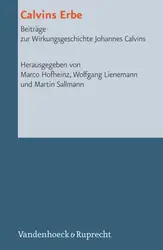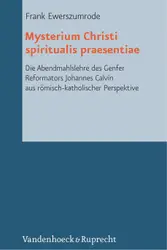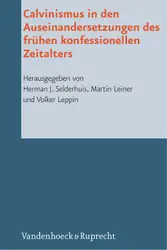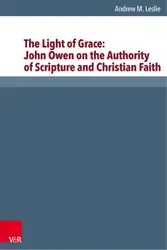Byung Soo Han intends to answer, by investigating the merger of patristic and contemporary sources in the theological method of Amandus Polanus, a significant question concerning the way in which the intellectual and methodological eclecticism of the Reformed was able to establish a coherent "system" of thought capable of defense as not only confessional but also orthodox in its theology and broadly catholic, drawing both on the thought of the Reformers and on the resources of the great tradition of Christian thought that extended back to the church fathers. From a methodological perspective, Polanus's development from the Ramistically-organized doctrinal framework of the early Partitiones, through the increasingly detailed and specialized efforts of the commentaries, disputations, and Symphonia, indicates a fairly clear, concerted effort to build toward a detailed systematic presentation – and in fact, each of these earlier efforts provided as it were building-blocks that would be incorporated into the Syntagma. This constructive labor itself serves to set aside the claim that Polanus based his theology on a deductive principle. The specific focus of the book is on the place and function of backgrounds and sources, traditional and contemporary, with particular emphasis on the place of the church fathers in Reformed orthodoxy. Polanus's patristic work, Symphonia, and its eventual impact on his full systematic work, the Syntagma, provides a singular case, within the sixteenth and seventeenth centuries, of the reformulation of patristic thought in a fully systematized form, suitable for combination with the results of biblical exegesis and contemporary doctrinal argumentation in the formulation of Reformed orthodox theology. This study attempts to assess the claim of catholicity and orthodoxy by Reformed theology, demonstrating the formative function of patristic thought in Polanus's theology. Further, the study illustrates the place of this traditionary exercise within the methodologically eclectic approach followed by Polanus and his contemporaries as they created a theology that drew not only on Scripture and contemporary philosophical assumptions but also on patristic, medieval, Reformation-era, traditionary Aristotelian, Platonic, and Ramist sources. This study, therefore, reappraises the development of Reformed orthodoxy. In Polanus's case, an older scholarship that read his theology as based on central dogmas or as an exercise of rationalism will be set aside in favor of a more nuanced view of his sources and method. Within this larger framework, Polanus's use of the fathers builds on and confirms the Reformers's assumption of catholicity in the face of the detailed polemics of Robert Bellarmine as well as confirming the point that his approach to formulation was traditionary and somewhat eclectic. Finally, the book identifies the theological cohesion of the early orthodox Reformed model, as exemplified by Polanus's thought, especially in its method of drawing together of traditionary materials from varied sources. In short, the book demonstrates the importance of the church fathers to the formulation of a Reformed orthodox and catholic theology in the context of showing, contrary to previous studies of Polanus's thought and contrary to the older stereotypes of "Calvinist" orthodoxy, that Reformed orthodoxy was neither a rigid monolith nor a matter of philosophical speculation but the product of a carefully conceived exercise in the compilation and assessment of biblical and traditionary materials.

Calvinus sacrarum literarum interpres : Papers of the International Congress on Calvin Research
book
Calvins Erbe : Beiträge zur Wirkungsgeschichte Johannes Calvins
book
Divine Accommodation in John Calvin's Theology : Analysis and Assessment
Arnold Huijgen
book
Calvinus clarissimus theologus : Papers of the Tenth International Congress on Calvin Research
book
Mysterium Christi spiritualis praesentiae : Die Abendmahlslehre des Genfer Reformators Johannes Calvin aus römisch-katholischer Perspektive
Frank Ewerszumrode, OP
book
Calvinismus in den Auseinandersetzungen des frühen konfessionellen Zeitalters
book
Rights in the Law : The Importance of God's Free Choices in the Thought of Francis Turretin
James E. Bruce
book
Britain and the Bestandstwisten : The Causes, Course and Consequences of British Involvement in the Dutch Religious and Political Disputes of the Early Seventeenth Century
Eric Platt
book
The Light of Grace: John Owen on the Authority of Scripture and Christian Faith
Andrew M. Leslie
book
Calvinus Pastor Ecclesiae : Papers of the Eleventh International Congress on Calvin Research
book
Reformation of the Commonwealth : Thomas Becon and the Politics of Evangelical Change in Tudor England
Brian L. Hanson
book
A Gift from England : William Ames and his Polemical Discourse against Dutch Arminianism
Takayuki Yagi
book

